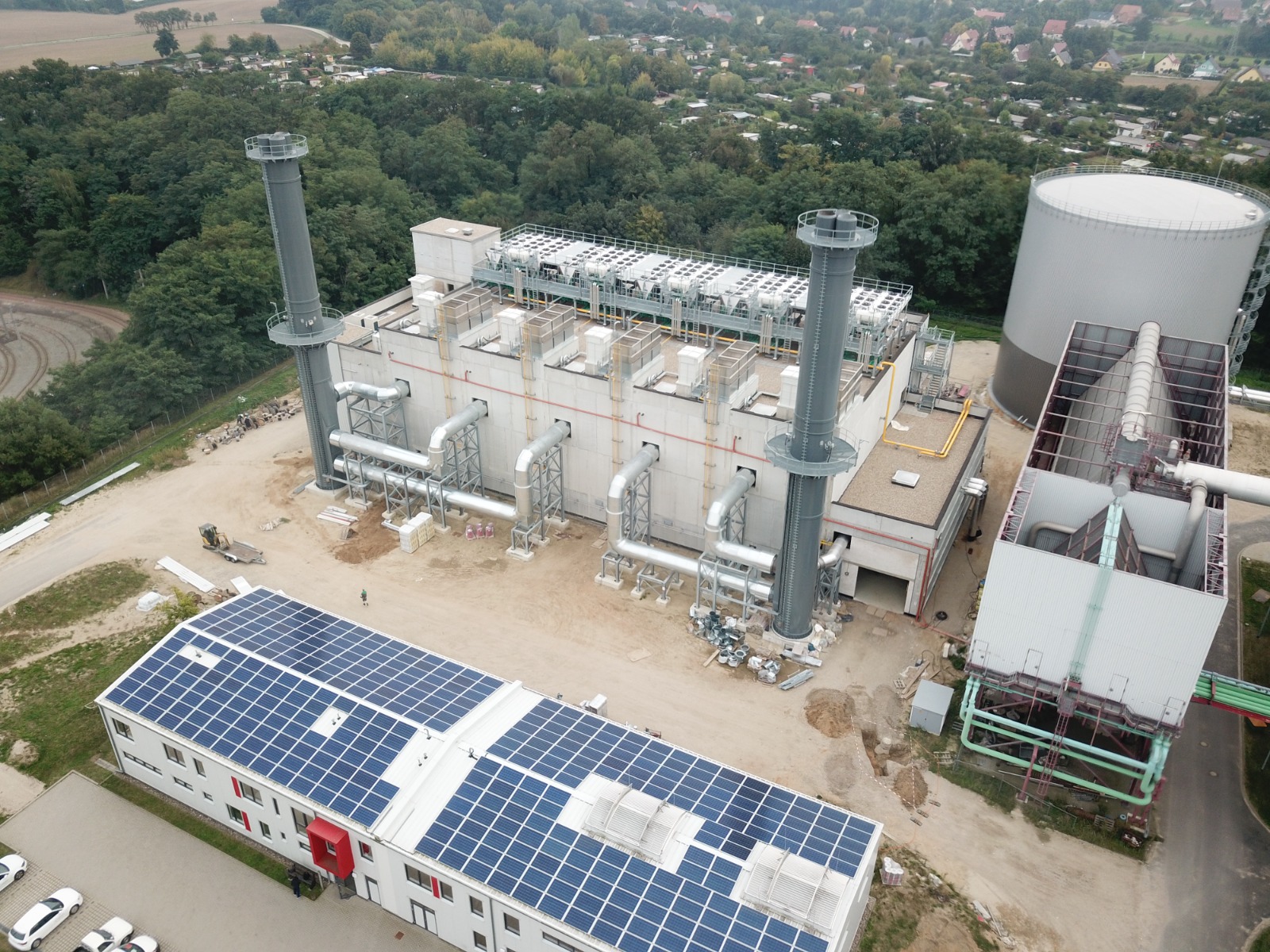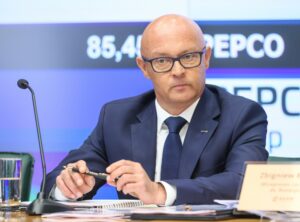It would be an exaggeration to say that the protest before the HQ of the energy provider in Frankfurt an der Oder was massive. On September 18, maybe 50 people gathered there, the rest were ordinary bystanders or passers-by. Nevertheless, the planned December 1 increase in electricity prices from 35 cents to more than 51 cents per kWh is a difficult challenge for a city that is poor by German standards – writes Aleksandra Fedorska, editor at BiznesAlert.pl Frankfurt.
Unlike in other, wealthier cities such as Berlin, in Frankfurt the increase in prices has an impact. The Polish-speaking owner of a restaurant in the local shopping mall „Lenné Passagen” even changed the menu for this reason. „I calculated how much it costs me to run the appliances for making pancakes for an hour. They are the most expensive. It turned out that we pay 3 euros per hour, so we will not have pancakes for the time being,” the restaurant owner says. In Frankfurt, pierogi will no longer be served after cooking in boiling water. However, you can still get the baked version. The residents of the city say that energy costs are not an abstract topic here, but a very concrete one, and they weigh down on the budgets of private individuals, companies and municipal enterprises in a tangible way.
Of course, the easiest thing to do is to blame the Stadtwerke Frankfurt (Oder) GmbH. There are also voices in the city that everything is to blame for the sanctions imposed on Russia. Some dream of the sanctions being lifted and buying gas from Putin again. They think their shaky little world would go back to normal this way. But that’s not possible. German energy has bigger problems than Russian gas.
Probably, Russian gas would not change the difficult situation in Frankfurt at all. Similarly to other local power suppliers, the increase in prices in this city results from a combination of many factors including the policies pursued in recent years.
„I’m just looking forward to retirement. I’m exhausted,” says an elderly man named Buri, guarding the entrance gate to the CHP Plant in Frankfurt. Mr. Buri has a lot of time in his little booth. „What has been particularly difficult in your professional life?” BiznesAlert.pl asked. „The hardest part is working the night shift. I also work on free days and holidays. There is only this rhythm of work and nothing else. Energy must be produced safely no matter the time of day or hour. Buri tells the story of his colleague who, at the age of 55, simply gave up in writing a big raise, a pay increase of EUR 1,000 net, and a promotion to a managerial position, because she no longer had the strength. The last few years have been too hard for her physically and mentally.
Young people are no longer interested in this kind of work. They do not want to give up family life and work at night. Despite the fact that at the power plant in Frankfurt the atmosphere between the employees and the management of the plant is good. The director is former nuclear expert Torsten Röglin. He treats all employees with due respect and gives the impression of a man who knows how to positively motivate people. Frank Losensky is responsible for the production of heat and power in the still working coal plant and in the new gas-fired CHP plant, which is technically up and running, but due to unpredictable gas prices, is not the main energy production site for Frankfurter Stadtwerke. As with most employees, Frank Losensky looks like a man in his fifties and is an experienced professional. There are 34 employees at the plant, 2 of whom are women. Losensky enjoys talking about energy very much. It is apparent that he is proud and pleased that his company has built a completely new and very modern thermal power plant in the area directly adjacent to the coal dust plant, which was built in the 1980s . For him, energy production does not end with the end of the shift. Losensky is one of 45 Stadtwerke Frankfurt customers who enjoy the possibility of renting photovoltaics along with a small energy storage facility. The lessee can thus produce close to 70-80 percent of the electricity they consume on their own private roof.
Torsten Röglin took over as director when the construction of the new CHP plant started in 2019. The construction was completed within the planned deadline, which borders on a miracle, because the pandemic restrictions for plants from the critical infrastructure category were and are draconian in Germany. Still, all employees wear FTTP2 masks in the plant, and also observe social distancing rules and other regulations. „At the most critical moments, we were even prepared for sleeping here instead of going home. Now the furniture for sleeping is in the basement,” says Antje Bodsch from the press department.
The construction of the new power plant cost EUR 60 million and was financed entirely by a loan. „Today, the cost of servicing such loans is twice as high and, most likely, such a construction would not be possible today,” admits Torsten Röglin. Frankfurter Stadtwerke has decided to extend the operation of the coal dust-fired CHP plant until March 2024. Production is supported by another small plant in the north of the city, which uses, among other things, fuel oil. It is not known how long this will be possible after the embargo on Russian oil from the beginning of next year. The same applies to coal dust, which is supplied from the LEAG plants in the Lusatia region. „There is no alternative to these supplies,” says Röglin.









